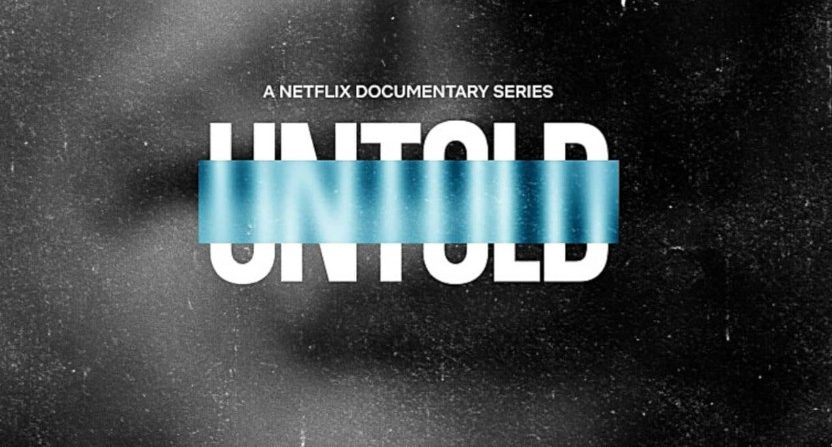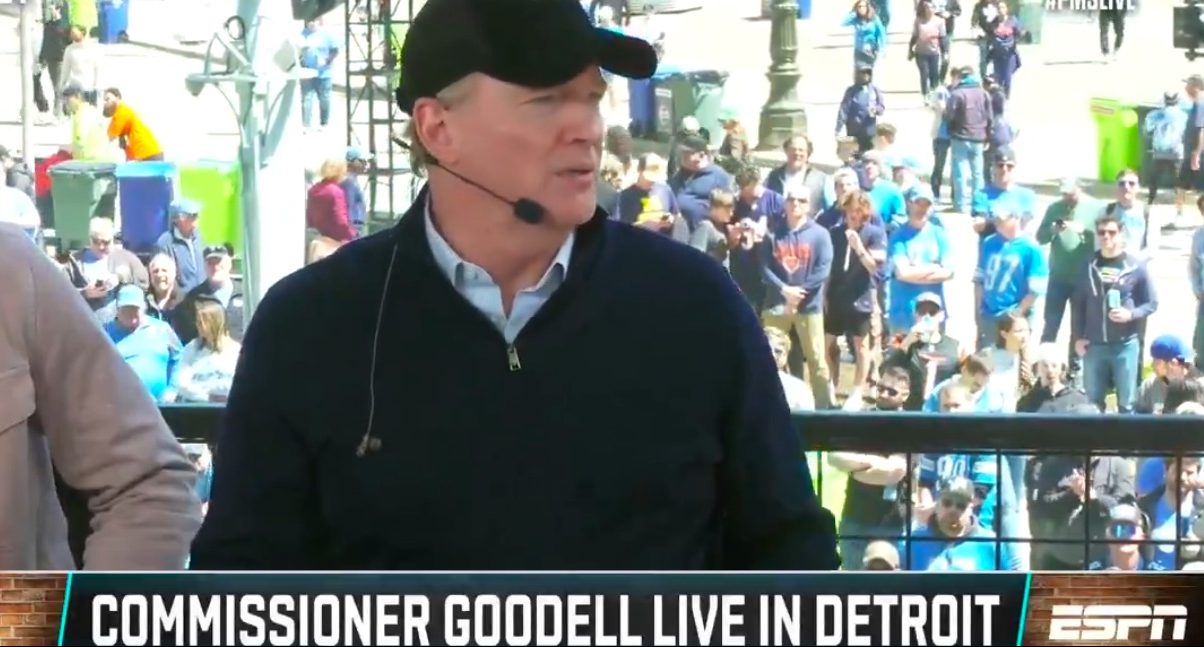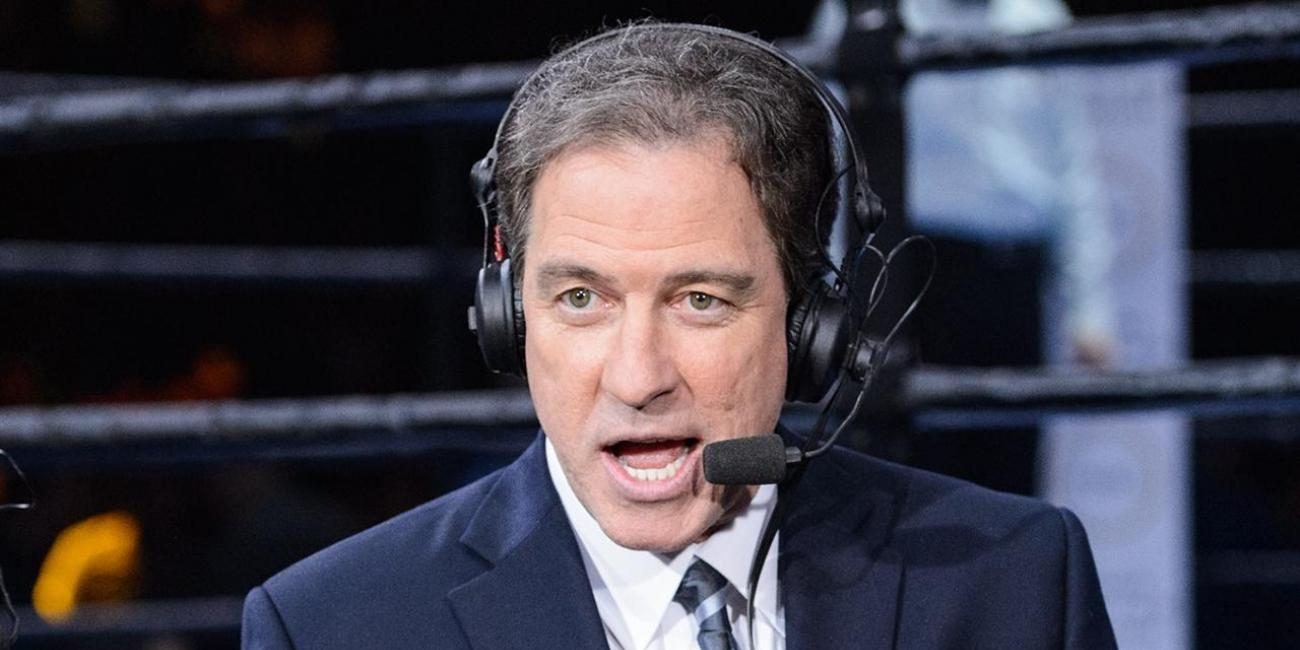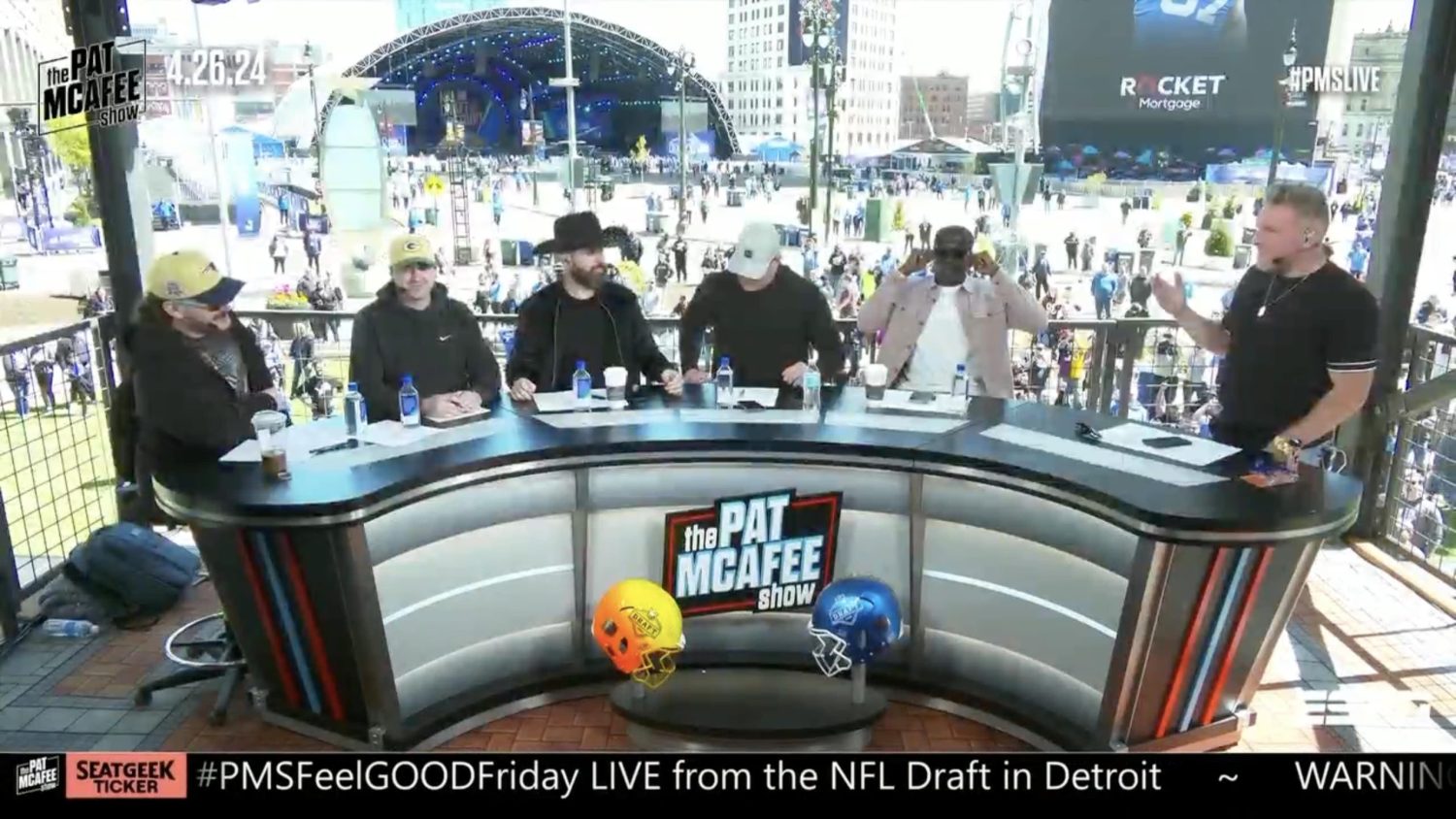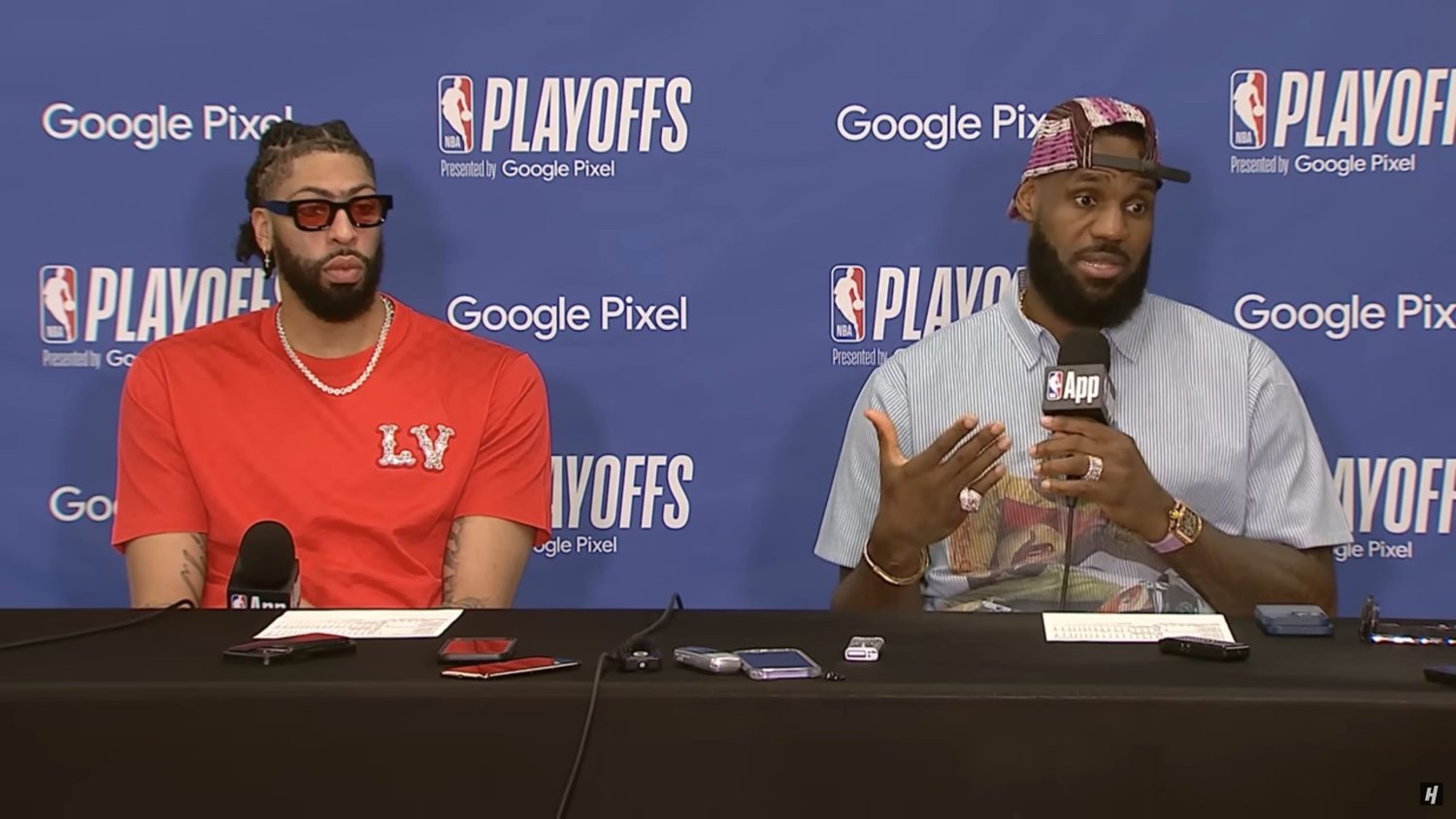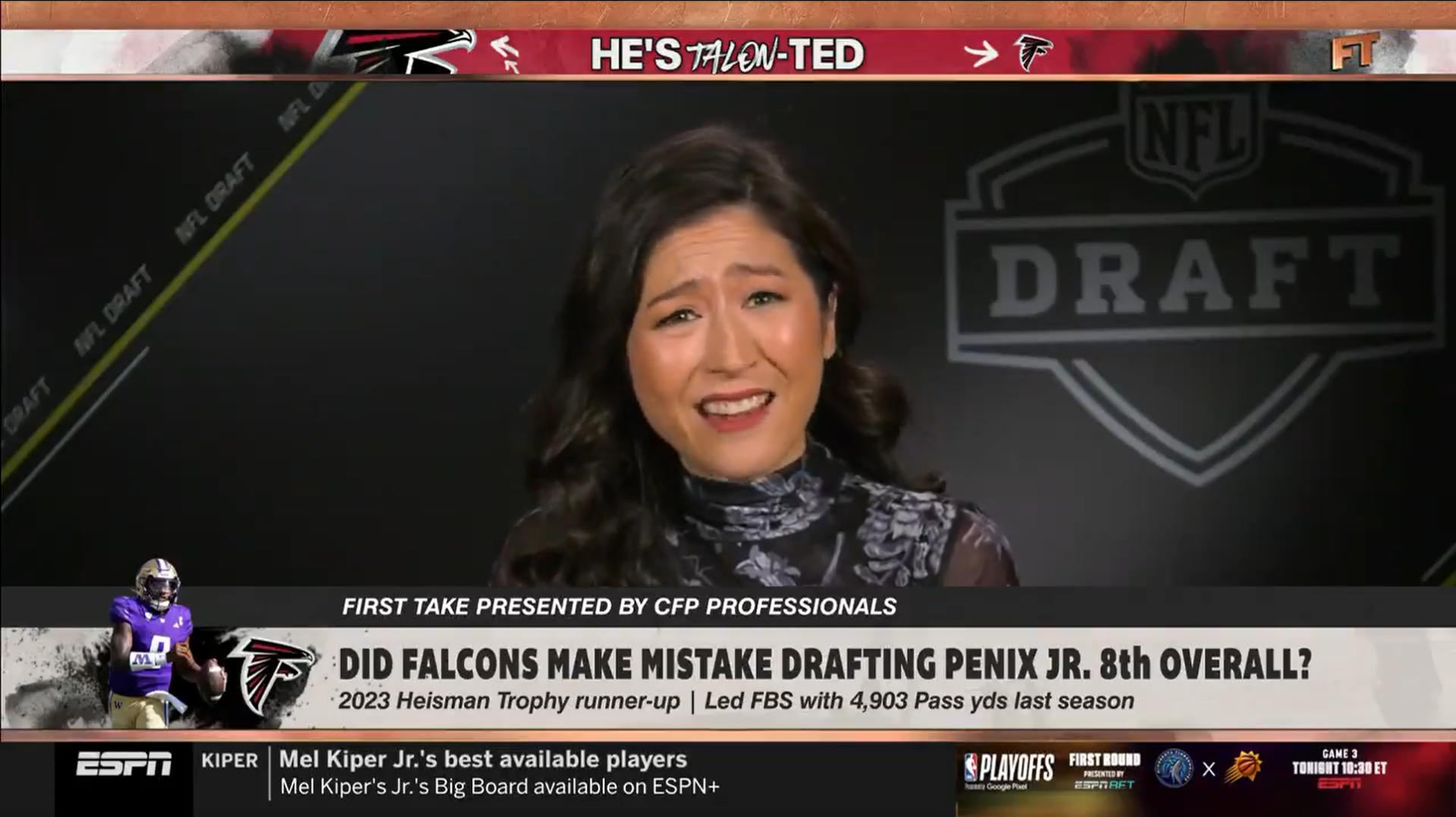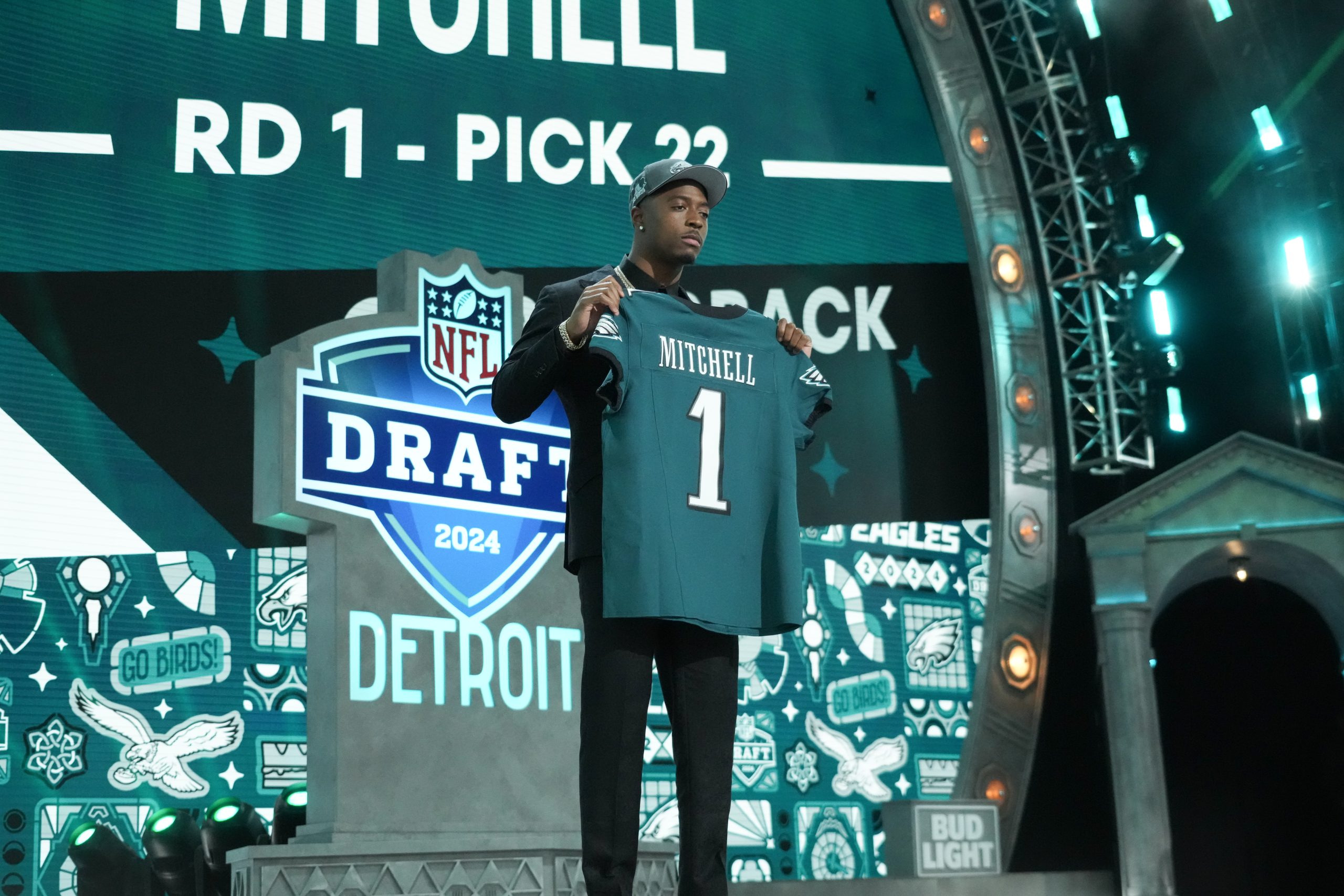Last fall, Netflix announced that the Untold series of sports documentaries would return for a second volume. At that time, all that was confirmed was that the series would include four new stories, with one on Manti Te’o and the fake girlfriend hoax. Tuesday saw Netflix announce full details of the second season, which will premiere weekly across four weeks beginning Aug. 16. The first installment is two-part Te’o doc The Girlfriend Who Didn’t Exist (directed by Ryan Duffy & Tony Vainuku), which features conversations with both Te’o and Ronaiah Tuiasosopo (who has since come out as a transgender woman and prefers to go by “Naya” and she/her pronouns, but still also uses the Ronaiah Tuiasosopo name). That will be followed by And1 Mixtape Tour documentary The Rise and Fall of And1 (directed by Kevin Wilson Jr.) on Aug. 23, Tim Donaghy documentary Operation Flagrant Foul (directed by David Terry Fine) on Aug. 30, and 1983 America’s Cup documentary Race of the Century (directed by series executive producers Chapman Way and Maclain Way) on Sept. 6.
The Way brothers (who previously discussed season one with us before its release) spoke to AA last week about the reception for Vol. 1, how that impacted their approach to Vol. 2, and what fans should expect from the new series. To start with, Chapman Way said his favorite part of the reaction to the first volume was hearing from people who weren’t sports fans, but connected with these documentaries.
“You work on these things for so many years, so when they finally release them to the public, it’s incredibly thrilling. And I think the big thing was we heard from a lot of non-sports fans that loved the series, which was really cool. You always know that people who love sports are going to be naturally inclined to enjoy the show, but to hear from a bunch of people that are like ‘Man, I knew nothing about this story, but I really connected to it and was really moved by it,’ that’s always the highest compliment for us.”
Maclain Way said it was interesting to see how the Vol. 1 stories resonated with so many types of people, from athletes in different sports to musicians to non-sports fans.
“Steph Curry and Aaron Rodgers tweeted about the Mardy Fish episode, which was great, and Drake put on a Trashers jersey on his Instagram, and that was fun. Seeing the different types of people the series reached is why we make these things. We love doing what we do, but we make them for an audience, and to see an audience react to it puts wind in our sails, and that’s the best feeling ever.”
Chapman said the Vol. 2 stories were stories they’d long had on their radar.
“All of these stories are truly stories that we’ve had on our Word doc of possible documentaries for years now, before we even had a sports anthology series. The 1983 America’s Cup had been an incredible story we’d wanted to tell for years. The Manti Te’o story was another kind of white whale in the sports space, one that we thought would be incredible if we could do. So it wasn’t even like we had a brainstorming session of ‘What kind of stories do we want to tell?’; these were stories that we’d been wanting to tell for a long time now.”
Maclain said the process of getting the Vol. 2 documentaries from ideas to selected stories involved speaking to key figures and seeing just how deep their stories went.
“We knew we wanted to do more episodes, we felt like there were more untold sports stories out there that interested us. It became more of the process that guided us in Vol. 1, talking to athletes, raw, vulnerable, warts and all…longform interviews, really getting athletes to open up about the good, bad, and the ugly, and really just trying to find the best narrative arcs to tell these stories.”
Chapman said the Te’o story in particular is exciting because it hasn’t been told in this particular way. He said it started with a discussion with Tuiasosopo.
“It was really interesting. The first thing we were curious about was it seemed like we hadn’t really heard too much from the person behind this scandal. So our journey really kind of started with reaching out to Naya, which is how she prefers her name. Talking to her and really realizing that she felt like she never really had an opportunity to tell her whole version of what happened and her truth and her journey. And just speaking to her, we felt like, ‘Man, this would be an incredible documentary with just her.'”
“But, obviously, we started doing more research. And besides the Katie Couric interview that Manti Te’o did right afterwards, he had never really sat down for a full interview on this story. So really, it was speaking with Naya first and then going to Manti, who really felt the same way of ‘Look, this was covered a lot in the press, but I feel like there were a lot of things that weren’t talked about or were missed.’ And I think as soon as you start having those conversations, it really ignited our brains and how we could turn this into a two-part documentary.”
Maclain said having talking with both Tuiasosopo and Te’o is crucial to that story.
“And so much of this story is just conversations and text messages and communications between these two individuals. So the degree you’re able to really tell the story without them, I don’t think you really are, I don’t think anyone’s really capable of telling the story without them. These were the two key essential people involved in this controversy. So when we were able to start a dialogue with both of them and hear what their experiences were, that’s when we felt very comfortable. Even though people have heard this story before, I think we go deep enough that it will be very new for a lot of people.”
The Donaghy documentary Flagrant Foul stands out for its discussions of the mob and mob ties, something that came up in Untold Vol. 1’s Crime and Penalties (on the Danbury Trashers). Maclain said the off-field aspects of those stories help make them much more interesting than they would be as pure sports stories.
“They are sports stories, but we always say any time they leave the court or the field or the stadium is when it really becomes interesting to us. That was the case with Crime and Penalties; it is a story on a hockey team and they play their games on ice, but there’s all this fascinating stuff going on off the ice, just really interesting parts of the story that do create these arcs that we love telling as filmmakers.”
“With Tim Donaghy, it was the same exact case; it’s not quite a documentary about what team’s going to win, what team’s going to lose, if it’s going to come down to the fourth quarter and a team’s going to make a three-pointer to win a championship game. This was much more a story of a man who started making poor decision after poor decision after poor decision until he’s at the center of a multimillion-dollar conspiracy of betting on these NBA games. We always joke around that ‘Any time the FBI comes into a story, it always adds a big jolt of energy.’ Those guys are usually the ones that catch the bad guys, so to speak, so it’s always an interesting aspect of the story to us.”
Chapman said Flagrant Foul and Crime and Penalties have crossover in terms of the sometimes-shady subjects they feature.
“I think both of those stories have subjects and characters at the center that operate on the fringes of society and legality. Our experience has been that they’re usually pretty unapologetic, which makes for a really interesting and dynamic interview. They don’t care about how they come off or if you like them or don’t like them. They’re just like ‘Here’s my story, now you deal with it.’ So we always find that a really thrilling way into documentary storytelling.”
The Untold series has often shown narrators with widely different perspectives on what happened, and Flagrant Foul in particular does that, with several of the interviewees differing quite significantly on what happened at particular meetings. Chapman said that presents technical challenges, but can intensify a story.
“The main challenge is just a very basic one; ‘What is the clarity to the audience?’ It’s a very hard thing to get across to an audience that there’s actually different [point of views] within a story. There’s just a technical difficulty with that; ‘Is the audience tracking this, can they make sense of this?’ We’ve found, going back to Wild Wild Country when we had very different POVs between different characters, it can add a lot of energy.”
“Most human beings have their own version of the truth. We feel like it puts the audience into action, into determining how they feel about the story and who they think is believable. And we’ve always found it very dynamic to have unreliable narrators at the center of our stories, and to not have any judgment on them and let them tell their story, and let audiences participate and see how they feel about it.”
As for overarching elements of Vol. 2, Chapman said their central theme is going beyond just a profile of an athlete.
“We try to shy away from what we consider pure profile pieces, ‘Oh, we’re just doing a profile on this athlete.’ We are trying to do storytelling. I think that is where our heart is as documentary filmmakers. We want stories with twists and turns, that have incredible act structures that we can craft into a compelling narrative. For us, who the athlete is is almost the least important component to us. It’s really ‘What is the heart of the story that we’re trying to tell?’ I would say the overlap is that all of these have these incredible narrative arcs and structures to them that kind of move beyond just a typical profile sports documentary.”
Maclain said part of the process of choosing stories, which is reflected in the Vol. 2 selections, is about those stories’ relevance to the people involved.
“We always have a bit of a smell test early on, we always ask ourselves, ‘Is this the most important thing that happened to this person in their lives?’ Getting a ‘Yes’ and a confirmation of that from at least our analysis, or from talking to them, we know that at least lays the foundation for a very interesting interview, for a very interesting conversation and dialogue. Obviously for someone like Tim Donaghy, I would argue that this scandal had the most impact on his life of anything he’s done. Similar to the Manti Te’o story, with the person behind the online identity. Or the And1 streetballers, they’ve all lived unique lives after the And1 Tour fell apart, but talking to them, they were really engaged with those years and wouldn’t give up those years for anything in the world. That’s always a great jumping-off point for us.”
Ahead of the release of Untold Vol. 1, the Ways talked about how going fully into sports documentaries (they’d previously done The Battered Bastards of Baseball, but much of their other work was outside sports) was a nice change of pace. It’s not as much of a change of pace now they’ve done two seasons of sports documentaries, but Chapman said the individual stories are unique enough to keep it interesting, and sports provides a great way to get into fascinating stories.
“The one cool thing about Untold is even though they are all sports films, each episode is very different, a new world for us to try to create. Sports just provide such an incredible backdrop for narrative-driven documentary storytelling. It gives us a background where we can be really creative and use our strengths in storytelling to tell these stories. For us, with Wild Wild Country, the whole thing just got so dark at times, and it was a lot to take on as a human, dealing with people’s traumas. Untold has been just an awesome experience for us, to work with not only incredible athletes, but our creative team that’s truly incredible, between our editors and our DPs [directors of photography] and our composer. For us to be able to work with incredibly talented people like that is really a dream come true.”
Maclain said another great part of this series is getting to work with amazing directors.
“It’s the chance to collaborate with people you really respect. Whether it’s Ryan Duffy and Tony Vainuku who directed The Girlfriend That Didn’t Exist, Kevin Wilson Jr. on And1, or David Fine on our Tim Donaghy episode, these are all incredibly gifted filmmakers. For us to step into a producing role for them was really fun. It’s a really fun series to work on.”
Chapman said the series also lets him and Maclain both use their own strengths while still working together.
“Mac and I have always had a really awesome creative collaboration, in the sense that Mac is a history major and I can brag that he’s super brilliant and smart and incredible at research and story and working with athletes. I do a little more of the editing and some of the filming, I’m more a little bit behind the camera. I think our talents and skill sets together really complement each other. And we have a very similar sense of humor and like the same stuff, we’re interested in the same music and the same bands. So for me, it’s really like being able to hang out with a close friend and make cool art together.”
And Maclain said Untold is a fun project given the unique challenges each story presents, which gives the Ways the tasks of figuring out how to solve those.
“There’s something exhilarating about finding these non-fiction stories and figuring out ‘How do we get this real-life story into the documentary medium?’ It’s something we’ve been doing for almost 10 years now. Every project has its own challenges, almost like its own unique Rubik’s cube of sorts, but it keeps your days with a lot of variety. A lot of different things pop up. And there’s so much different work to do, too, especially with a series like Untold: Chap will have his workday and I’ll have my workday, and we’ll kind of catch up at the end and figure out how do we move the pieces forward.”
Untold Vol. 2 will premiere on Netflix on Aug. 16.

